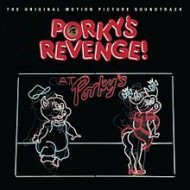Humans To Begin Resembling Pigs On A Cellular Level

“The world’s first xenotransplantation treatment — where animal cells are transplanted into humans — has been approved for sale in Russia. The treatment, developed by Living Cell Technologies in New Zealand, is for type 1 diabetes. It consists of insulin-producing pig cells coated in seaweed.”
— As if we weren’t eating ourselves into what’s pretty obviously our destined future state already, we’ve now begun injecting ourselves with the actual living cells of pigs. We are literally turning ourselves into pigs! (Pigs coated with seaweed! Double yuck!) Space, here we come.
THE ACTOR (Jimmy Riddle)
It’s late, but not too late. You’re still buzzed up on the energy of the evening, and the potential of the night ahead is so promising that you’re not even worried about having to get up for work tomorrow morning; you’ll deal with that when it comes. You’re with a large group. Some of them you know, some of them you’ve heard of, some of them are complete strangers. When somebody suggested going to a lounge, you snickered in that oh-so-superior way of yours, but now that you’re here, you have to admit that you can see the appeal. You’re all in a private area, your heavy coats draped over the back of the couch, members of the group draped over each other. You’re at the end of it, flirting like crazy with an extremely attractive person who you just met who is, thankfully, flirting like crazy back. There are lots of smiles and nods, lots of fingertips brushing the backs of hands to emphasize points. The vibe is amazing. This is the reason you moved to this city. This is why you make all the sacrifices, deal with all the daily negotiations and indignities. It’s so you can have a night like this, where the hot breath of someone gorgeous who is speaking seductively into your ear because it’s a little loud makes you feel like everything is going to be perfect from now on. I can’t say what you’re drinking, but I’m pretty sure the music that accompanies this video of Jimmy Riddle (THE ACTOR) is what’s playing the background. Enjoy the rest of your night. [Via]
False Nostalgia: How VH1 Ruined the Taste of a Generation
by Josh Kurp

In the period between when VH1 stopped airing music videos but before they became the home for such quality infotainment as “Glam God with Vivica A. Fox” and “Celebrity Fit Club,” they were best-known for two series: “Behind the Music” and “I Love the 80s,” and that show’s light-history spawn.
On December 16, 2002, VH1 aired the first segment: “I Love 1980.” This American interpretation of the BBC show (which itself started with “I Love the 70s”), had segments on Airplane!, The Empire Strikes Back (isn’t it weird that those two films came out in the same year?), “Rapper’s Delight,” and Gloria Vanderbilt jeans, among other pop culture semi-relics. There were also recurring segments where celebrities like Bret Michaels and Lionel Richie would present “Babes” and “Makeout Songs” of each year. It was genius and a huge hit for a network desperate for one.
Repeats of the 80s series aired constantly. Soon they backtracked to the 70s, then the 80s struck back, then the 90s came, and so on. It was also a huge hit in my household, particularly during those dreaded post-dinner hours when it wasn’t baseball season and “Seinfeld” wasn’t on.
Before long, I was picking up factoids I wouldn’t have otherwise known about “Square Pegs” and Rob Lowe’s sex tape, thanks to the not-at-all prepared, supposedly off-the-cuff remarks made by Hal Sparks, Michael Ian Black, Third Eye Blind’s Stephan Jenkins, that blonde woman with the glasses and other semi-celebrities.
Wikipedia was founded in 2001, but only grew to two-million articles by 2007, so, VH1, with both “I Love the Whatevers” and “Behind the Music,” served in its stead. Those shows gave just enough information to its viewers that they could sound relatively intelligent in talking about pop culture without actually having seen, listened to or owned said culture product, particularly when it was new.
Which leads us to this weekend’s (highly anticipated!) release of the sequel to Tron. The original 1982 film made only $33 million in box office revenue during its initial run, a number that Porky’s, released in the same year, would best in about three-and-a-half weeks. It is therefore necessarily true that most people who talk about and who are in the intended audience of the Tron sequel haven’t actually seen the original, although among those, most would say it’s a mediocre film with outdated technology, and how it was a bust for Disney (which, granted, they’d be correct in stating). And it’s not like Tron is on the level of 8 ½; it’s not like anyone feels the need to go back and watch it. Who would be ashamed of himself for not seeing a mediocre film? But because all this information is around us, especially on the sort of channels where Katy Perry is currently the number one artist on their Top 20 countdown, it seems suggested that you should.
I was one of those people who hadn’t seen Tron until about five months ago. Even before watching the film, I had an opinion of it, with said opinion based somewhat on that “Simpsons” scene where Homer asks if anyone’s seen Tron and everyone replies no, but more so because of series like I Love the TK Decade.
The clip’s not on YouTube, but I have a feeling the Tron segment of “I Love the 80s” went something like: clip of the film, commentator describing the plot, more clips of the film, another commenter making fun of the Lightbike scene, visual evidence of what the commenter is talking about, then some joke about the film in general, or at least an ironic boast about its awesomeness. Rewatching I Love the TKs, there’s something about them that I didn’t catch when I was younger: the talking heads aren’t so much telling jokes as they are explaining the film/show/album/whatever, and then either singing or quoting from the material. There are virtually no jokes; the show is simply for people who say, “Hey, I remember that!” This is a value instilled in the production: during the interviews, for which comedians and the other randoms are booked back to back, the producers ask the talking heads to narrate and explain more than they ask them to riff.
I didn’t remember Tron, because I’d never seen it. But I felt like I did. Likewise, I spoke about ’Til Tuesday as if I had heard “Voices Carry” constantly on the radio in 1985, which I did not. My friends do the same thing, for things for which they weren’t actually alive — and it’s not like we’re talking about the Beatles here, we’re talking about MTV VJs and Pound Puppies. Our memories of things we couldn’t possibly remember were brought to us by VH1, and they’ve stuck.
That’s why a remake of Clash of the Titans exist, and why we’ll soon be (not) watching remakes of Dune and Conan and Escape from New York in our local theaters. (And Flash Gordon. And Highlander. And Arthur. And Barbarella. And Fletch. And Videodrome. And The Neverending Story. And Westworld. And even Porky’s.) False nostalgia is easy to comprehend, and it’s an easy desire for people to capitalize on. Just because we know something doesn’t mean we’ll want to see it — or so we’d like to believe. The Karate Kid, The A-Team and The Expendables made $350 million, $176 million and $266 million at the box office this year. Both The A-Team and Karate Kid were featured on “I Love the 80s,” as were vehicles for many of the actors that appeared in Stallone’s odd nostalgia-and-steroids fest.
VH1 was but the forefather: once we were trained, Google and Wikipedia and YouTube largely replaced it as a tool for the false nostalgia impulse. But VH1 was the first instance of being told that something in the near-past of pop culture was cool, or at least delightfully campy, and presented these relics in such a way that it was easy to quote and talk about with your friends, instead of actually discussing why Back to the Future was actually an important film. Everything became a giant in-joke that everyone was supposed to get.
Likewise, “Behind the Music” (begun in 1997) and “Pop-Up Video” (1996 to 2002): one gave an outline of an artist’s career in an hour or an hour-and-a-half and the other revealed not-particularly-meaningful-yet-oddly-compelling factoids about a particular artist and their song and music video. What was “Pop-Up Video” but a bit of Wikipedia in your YouTube, but on your TV?
False nostalgia means that The A-Team was a success at $176 million, but it also means false memory. It’s having sensations and ideas incepted in your brain that were never even yours. Millions of bored teens and tweens were told by their older, hipper peers that something was cool — but with no context, no experience, no value, no discernment, and the coolness was marked with irony. In the ironic embrace of VH1’s chat-bots, what was actually really quite bad was considered in the retelling to be cool. The recent past became nearer, even as it became flatter and context-free. A whole generation grew up with an utterly false nostalgia for culture products it had never consumed — and nobody even remembered that they hadn’t.
Josh Kurp thinks Billy Squier’s “The Stroke” is the greatest song of 1981, but only because Andrew Dice Clay told him so.
Piano-Playing Robot Hearkens To Nerd-World Yesteryear
This robot playing “Mary Had a Little Lamb” on the piano looks kind of wack compared to hep cats like Shimon, the head-bobbing marimba player, or the avant-garde improv trio Three Sirens, or Toyota’s incredibly tight four-piece band. (Not even to mention Daft Punk, or Herbie Hancock.) But it’s actually pretty cool, because it can read and play a musical score on the spot.
As New Scientist reports,
“The robot’s limbs are controlled by motors and their position is updated every 20 milliseconds. At the moment, it can only hit the white keys. The robot can pick up wrong notes thanks to a pitch detection algorithm which makes sure each note is the correct pitch for that key. If the pitch is wrong, the system checks whether it fits neighbouring keys and the robot makes a note of the mistake so it doesn’t make it again. It also uses the algorithms to detect the pitch of notes played by others so that it can join in and harmonise.”
Very impressive programming. But then, maybe less so when you realize that people like Tim Pace were doing stuff like this, thirty years ago:
As People magazine reported, way back in 1980,
“Pace, who tinkered with electric trains and radios as a boy, did aircraft maintenance on the Navy carrier York-town, then worked as light man for Jimi Hendrix, Rush, the Byrds and the Kinks. The movie Star Wars inspired his robot sideline in 1977; at first he used an R2-D2 clone but redesigned the robot when director George Lucas’ lawyer threatened suit. A sci-fi freak, Pace drives to Star Trek conventions with wife Lorrie, 27, in his own USS Enterprise. It has a gadgety control panel and fires fake laser beams but still looks like the mail truck it once was.”
Wow. Robots, man. On Friday!
Fox News Watchers May Be Getting Bad Information
A shocking study on misinformation in the 2010 election has found that “Fox News viewers are the most misinformed of any news consumers.” I’ll give you all a moment to retrieve your mandibles from the carpet.
Mexican Spy Drone Crashes Very, Very Barely Inside America

Here’s where the OMG MEXICAN SPY PLANE ATTACKED THE UNITED STATES. It landed in El Paso — in a backyard a couple thousand feet, at most, from the Cesar E. Chavez Border Highway. INTERNATIONAL INCIDENT!
Dog Ugly
Sun exclusive: “Is this the ugliest dog in Britain?” Not having an extensive knowledge of British canine pulchritude I cannot say with any degree of accuracy, but what the hell, sure.
Man Has Bad Time On Train
God I think I’m close to crying again. I NEVER cry. Just want out. This might be a life changer.less than a minute ago via Mobile Web
Stephen Tschida
ABC7Stephen
The feed from what is apparently Washington newsman Stephen Tschida’s Twitter account details a harrowing journey to Philadelphia by rail. At one point the cold and tired reporter compares the situation to something out of Kafka, while at another moment he observes that, “This whole night is like some wierd agonizing hallucination. Now they can’t open doors to let people off. What is going on?” The happy news is that he finally arrived at his destination, although the psychological damage may be permanent. Read the whole thing and experience the suffering first hand.
